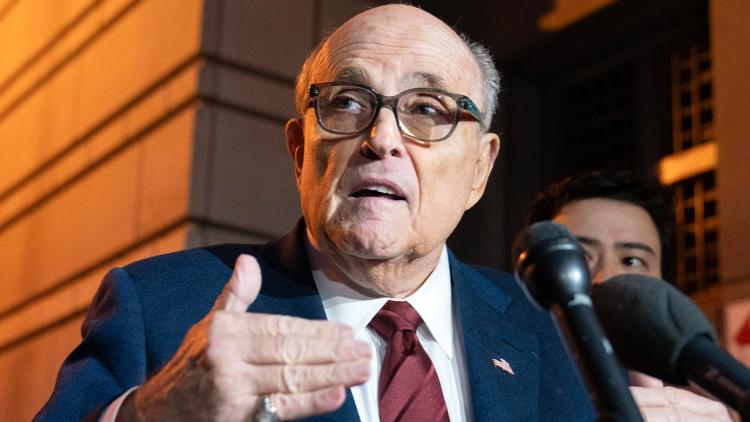NEW YORK — A judge threw out Rudy Giuliani ’s bankruptcy case on Friday, finding that the former New York City mayor had flouted the process with a lack of transparency.
U.S. Bankruptcy Judge Sean Lane formalized the decision after saying he was leaning toward doing so on Wednesday. Lawyers for Giuliani and his two biggest creditors — two former election workers he was found to have defamed — had agreed that dismissing the case was the best way forward.
The dismissal ends Giuliani’s pursuit of bankruptcy protection but doesn’t absolve him of his debts. His creditors can now pursue other legal remedies to recoup at least some of the money they’re owed, such as getting a court order to seize his apartments and other assets.
Dismissing the case will also allow the ex-mayor to pursue an appeal in the defamation case, which arose from his efforts to overturn Donald Trump’s 2020 election loss.
Lane said evidence in the case showed that Giuliani had failed to meet obligations of financial transparency required of a debtor and that dismissing the bankruptcy was in the best interests of people to whom the ex-mayor owes money.
“The lack of financial transparency is particularly troubling given concerns that Mr. Giuliani has engaged in self-dealing and that he has potential conflicts of interest that would hamper the administration of his bankruptcy case,” Lane wrote in a 22-page decision.
The judge said that most debtors will seek to remedy such problems when alerted to them, but, “By contrast, Mr. Giuliani has done nothing.”
A message seeking comment was left with Giuliani’s lawyer and spokesperson.
Giuliani’s other creditors had wanted to keep the bankruptcy case going with a court-appointed trustee taking control of Giuliani’s assets.
The dismissal includes a 12-month ban on Giuliani filing again for bankruptcy protection.
Giuliani filed for bankruptcy last December, days after the two ex-Georgia election workers — Ruby Freeman and her daughter, Wandrea “Shaye” Moss — won a $148 million defamation judgment against him.
They said Giuliani’s targeting of them because of Trump’s lies about the 2020 election being stolen led to death threats that made them fear for their lives. The filing froze collection of the debt.



